The ability to really listen to your radio personalities is an essential skill of every PD or producer, we’ve learned at Next Radio 2015.
Top stations rely on teamwork. Even if you would focus on your own career and personal well-being, you can have an open ear for colleagues, from regular meetings and brainstorms to occasional gatherings and talks. Because creating a good vibe in your team is just as important as talking about tomorrow’s topics in your show. “One of the greatest things you can do, is listen to people.”
“Think about what they’re saying and kick it around together”
Focus on harmonious collaboration
Showing a video of radio psychiatrist Frasier Crane being ‘managed’ by his producer Roz Doyle during their first show – “That’s how not to do it” – Helen Thomas introduced talent management tips, based on her experience as executive producer of The Chris Evans Breakfast Show on BBC Radio 2 and of other programs. “You all need to work together to create the best possible radio. The minute you adopt an ‘us and them’ approach, you’re heading for disaster. Make sure your presenter sound great.” Her advice is to be open for creative ideas and “never give a flat ‘no’ straight away. Unless what a presenter is proposing is totally irresponsible, illegal or libelous, you should think about what they’re saying and kick it around together.” She calls Chris Evans “an ideas machine” who “has about 10 ideas a minute – 5 of which are brilliant, 3 of which can be built up, and 2 of which should never see the light of day…”
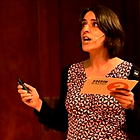 Support & honor your personalities
Support & honor your personalities
“Always listen intently to what your presenter is saying, and react accordingly” is another tip. “It’s your responsibility to be across every single word that is broadcast on your program”. Thomas considers producers to be “a first line of defense” for presenters, and thinks they should give talents their backup and acknowledgement wherever necessary. “They need to know that you are fully invested in what’s happening on the air.”
Contribute your own ideas
In her opinion, motivated producers “always bring something extra to the party” and therefore always look for inspiration during their daily life. Write down observations or thoughts that pop in – even “just the germ or seed of an idea that could potentially translate into content on the air”. Helen Thomas notes “some presenters are not interested in any ideas, unless the ideas come from them. If you are working with one of these presenters, then you need to work out the psychology of that [person]. But I guarantee you: every presenter will be impressed that you’ve been thinking about the show after hours.” Her final tip is to simply “enjoy it!” as “if you’re not having a good time, then your presenter certainly will not be having a good time, and no-one listening will be either.” In the end, it’s all about treating personalities as individuals. “I talk to Chris Evans the same way as to Simon Mayo or Claudia Winkleman or Jeremy Vine. They’re people; not just this kind of mass presenter.”
“What can you flatpack today?”
Include benchmark ‘comfort zones’
Orion Media’s Brand PD Mike Newman oversees Free Radio and Gem 106, and has experience with building several morning shows & teams. He compares developing a show to furbishing a house, with several tables as essential furniture. First off, a show needs occasional tables (where listeners ‘sit down’ occasionally). “They’re dependable, they’re useful – your news, your traffic, your weather; stuff that’s got to be in your show.” Next is a coffee table, a small centerpiece in your lounge where people feel comfortable. “That’s your benchmark. You might have a couple of those.” Finally, there’s a dining table. “This is where most of your guests sit, where you serve most special dishes. It’s your ‘five past eight’ or wherever the peak of your show is.”
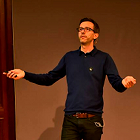 Make content stand out
Make content stand out
Newman talks about Ingvar Kamprad, “the godfather of the flatpack”, whose invention was a unique concept that allowed for a cheaper transportation of ready-to-assemble furniture to his IKEA stores. “When you look at tables in your breakfast show, […] what can you flatpack today? Your ‘five past eight’… look at it and think: can I deliver it differently today than I did yesterday or than our competitors are going to deliver theirs?”
Reinvent (or innovate) regularly
To complete his analogy, Mike Newman speaks of the tablecloth as essential decoration. “We don’t get it out all that often, it goes for special occasions only, and it covers the whole table.” He suggests to evaluate your complete breakfast show on a regular basis during team meetings where every member can contribute ideas, especially input to keep the show fresh and interesting. His checklist for evaluating shows (which could also be based by listening to airchecks) is consisting of:
- Tables: which format elements are where, and what’s their purpose? “Make sure your big centerpiece is in the biggest spot on the show.”
- Flatpack: how can you deliver a regular topic (or particular story) differently? “Can you take your traffic presenter to [the freeway] that’s just opened?”
- Tablecloth: how can you keep your entire show surprising and engaging over time? “When was the last time you’ve made that whole experience feel different?”
“When did you last listen to your team members?”
Put ideas into action
When he was Deputy Group PD for GMG Radio, Chris Stevens and his colleagues went through no less than “645 days” of hold-separate (meaning lots of red tape) before the UK government allowed Global Radio to purchase them. It was a time of “headline after headline”, rumors and speculation – also because the two companies were not allowed to exchange information before Global’s takeover was approved. So, for almost 2 years, many employees of GMG didn’t know if they would still have a job next month. This taught them to use a window of opportunity as soon as it’s available. “That big promotion you’ve always wanted to do… now’s the time to do it.” Fifty Grand Friday even got them a Radio Academy Award, “five days after Real Radio no longer existed! Unfortunate timing at the end, but great to do stuff like that. It really helped us as a team to going on through the uncertainty.”
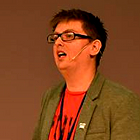 Create a fun environment
Create a fun environment
As an alternative to long-term planning, they went on developing short- and mid-term plans – including promotions that wouldn’t cost a lot of money, like The Real Radio Bootcamp Challenge, and events where staff members would join together for fun days of team bonding. Stevens: “There were always things going on; to look forward to; to get involved in; to talk about, rather than just: when is it all going to end?”
Put people’s well-being first
Some employees felt uncomfortable in dealing with insecurity, so their colleagues helped them to find another job. “We would help people make demo tapes or take time off for interviews, sometimes with rival groups, but it’s the people that matter here.” They always tried to “keep things human, even if the process is anything but. One of the greatest things you can do, is listen to people. You don’t have to have all the answers.” He encourages radio professionals to look for both their personal well-being and have an open ear for their colleagues. “The happier you are, the better you are – as a colleague; as a manager; as a person. How happy are you in your job? Are you doing what you want to; progressing the way you want to? And when did you last listen to your team members, just chat with them and hear their thoughts?”

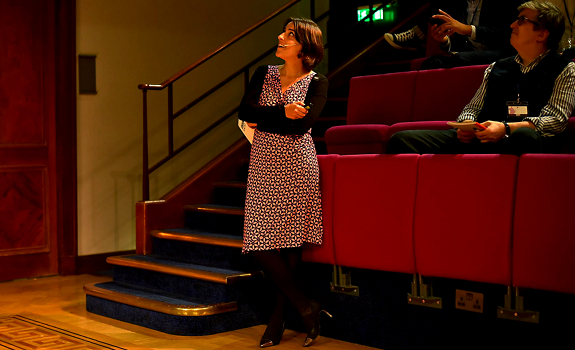
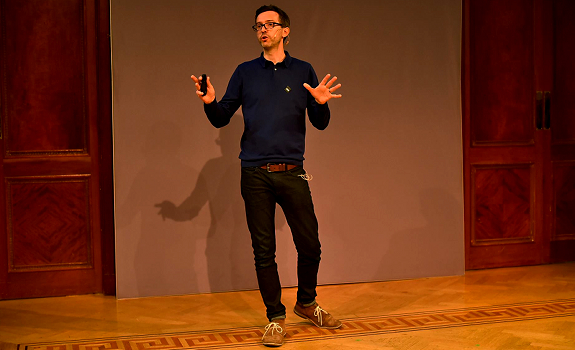





Add Your Comment